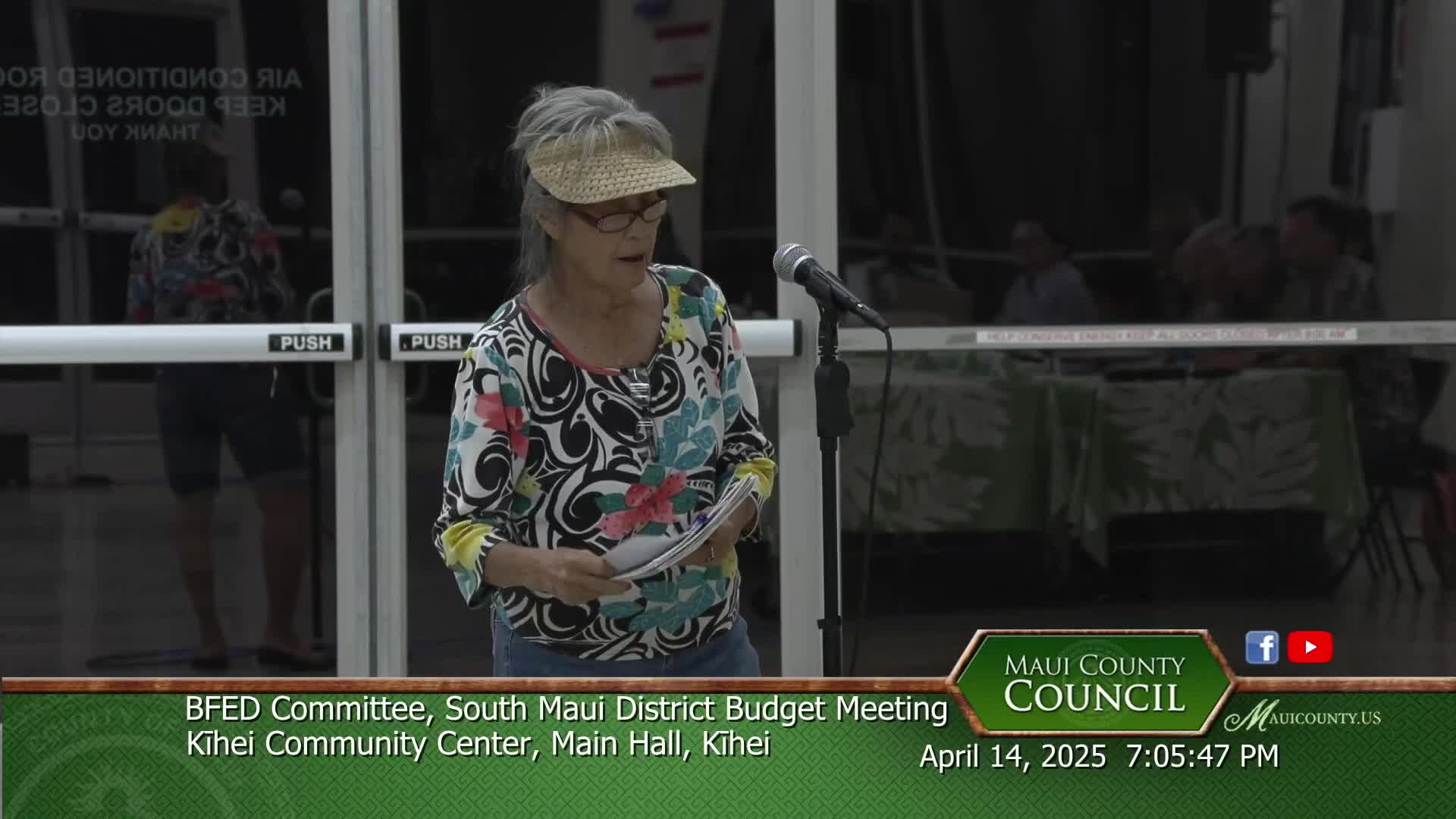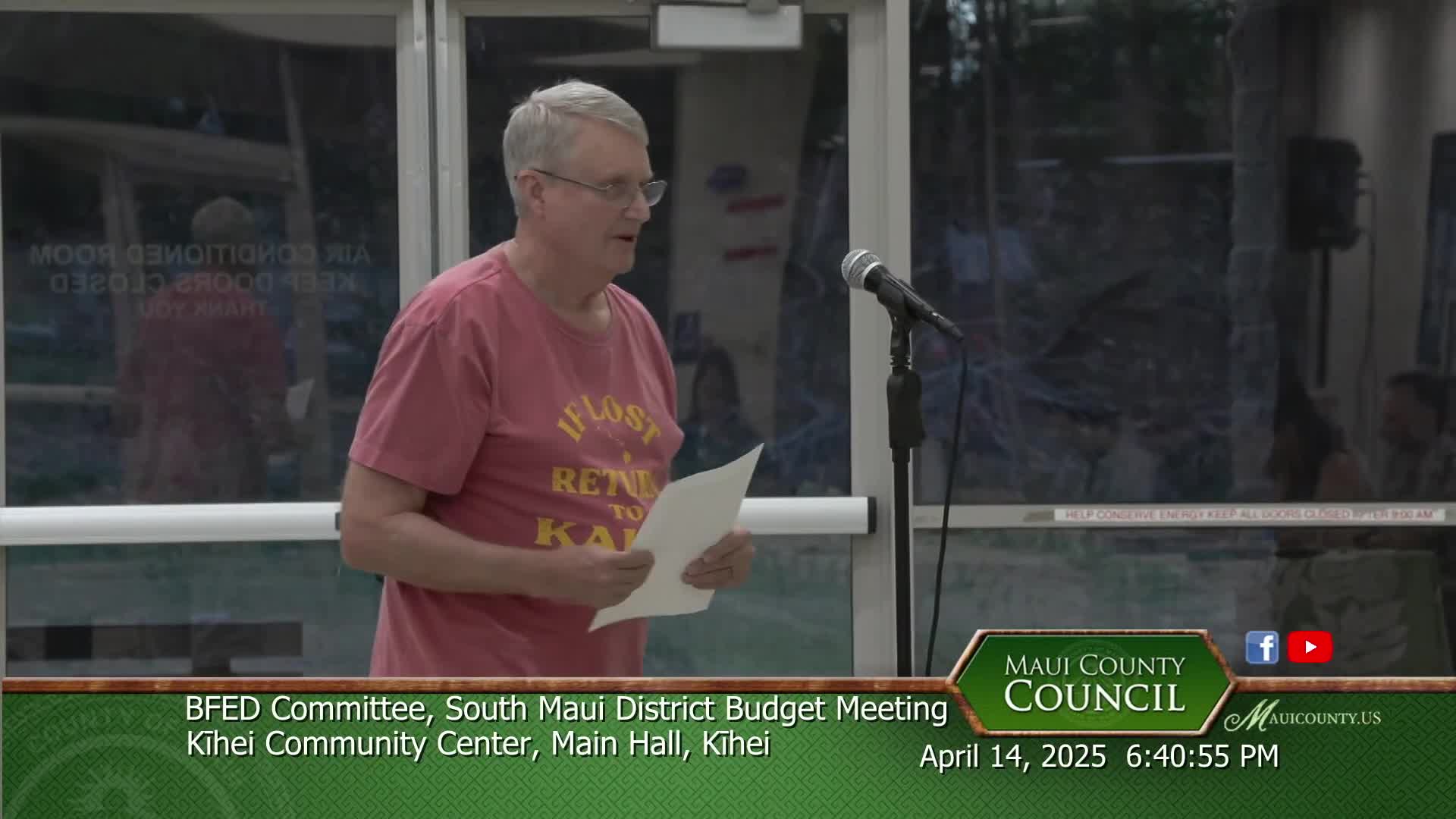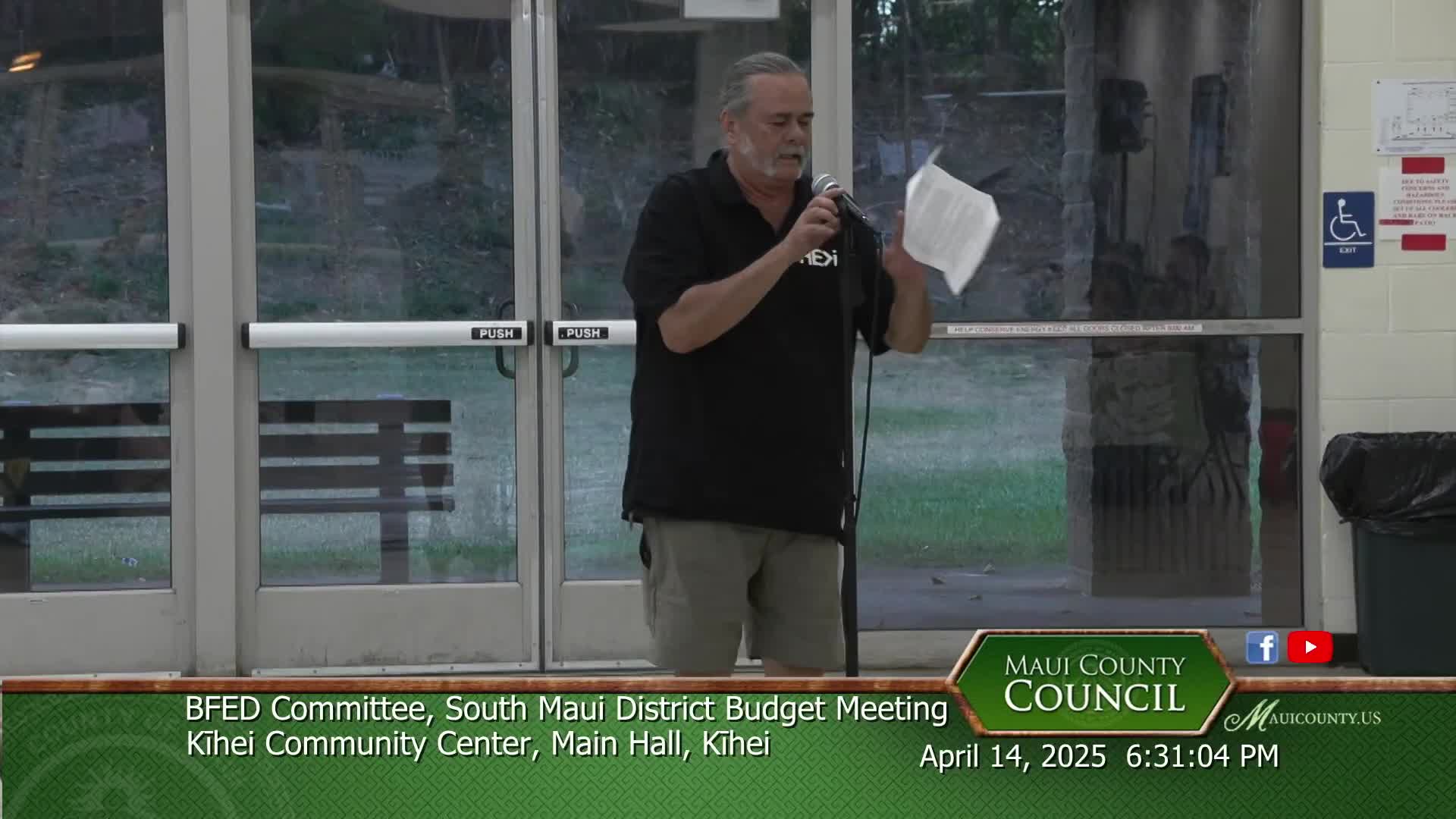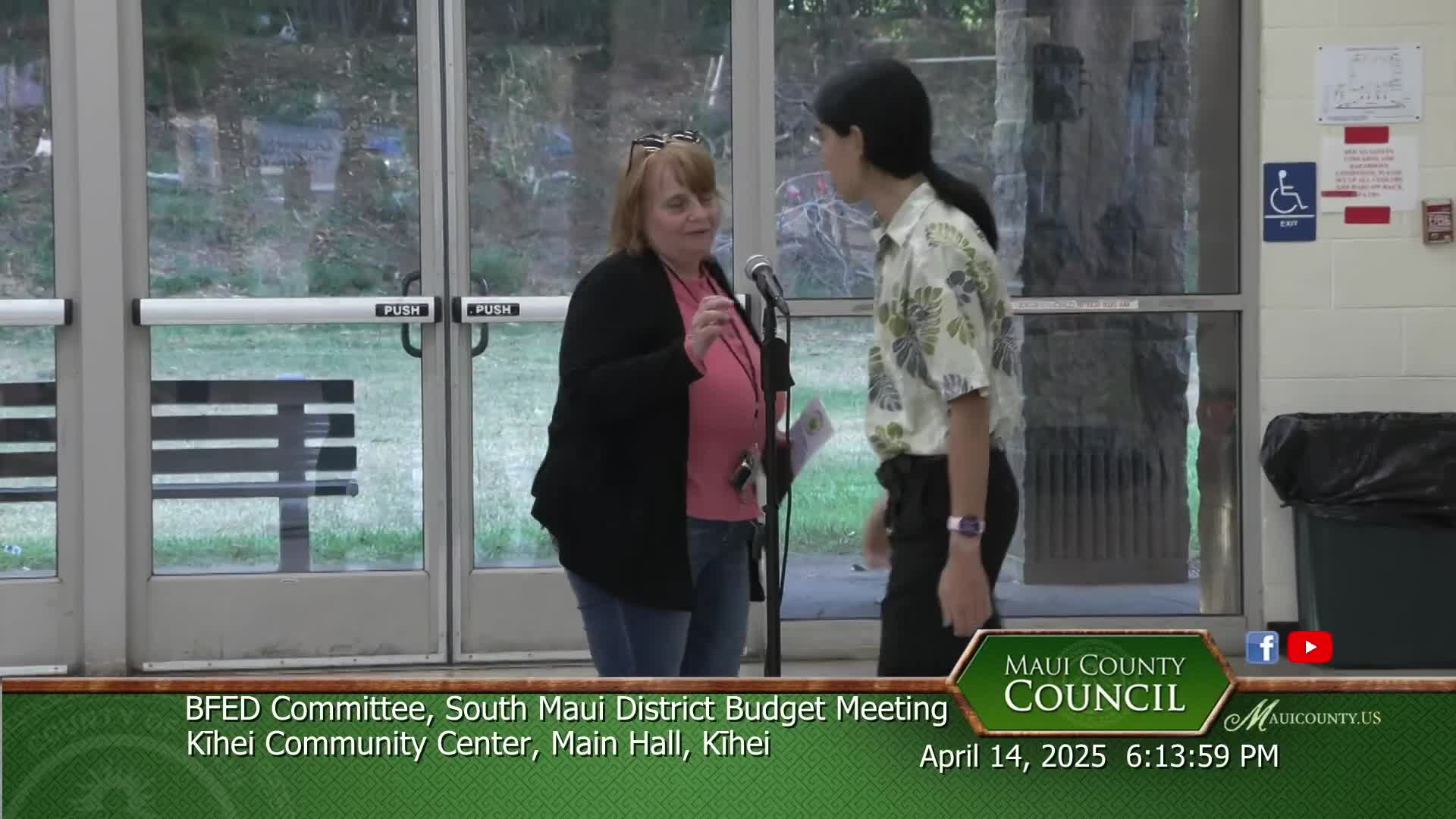Article not found
This article is no longer available. But don't worry—we've gathered other articles that discuss the same topic.

Grow Some Good asks council to sustain school‑garden coordinators that teach hands‑on agriculture and nutrition

Maui Nui Marine Resource Council asks for continued funding to expand coral restoration and water‑quality monitoring

Kaʻaumanu Church seeks county support for $2.73 million restoration project

Maui AIDS Foundation speakers describe testing, harm‑reduction and correctional facility work; request continued county support

Students and educators tell council STEM Works funding helps island students and career pipelines

